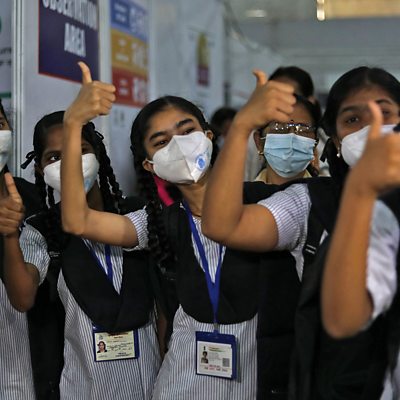Episode details

World Service,3 mins
Covid-19: Can Corbevax solve the world's vaccine supply problem?
Science In ActionAvailable for over a year
Once of the lessons of the pandemic has been the importance of a strong antibody resistance in protecting us - the kind of protection achievable with a vaccine, and being able to follow these up with boosters. However, the failure to get vaccines fairly to the whole world is hampering this protection. One of the reasons for this is that insufficent numbers of doses are being produced. Now, a vaccine called Corbevax has just received emergency use authorisation from India. The active ingredient is a small part of Covid-19's spike protein - the most important part of the virus, which enables to the virus to attach itself to us. In theory, Corbevax could be produced cheaply in large quantities and go a long way to addressing the problems of Covid-19 vaccine availability globally. This can be brewed, or grown, in yeast in a similar way to several other widely available vaccines. The technology used to make it is far simpler and much more readily available than that used to produce mRNA vaccines. It was developed by a team from Baylor College of Medicine in Texas including Maria Elena Bottazzi. She explains the advantages of this process, compared to the mRNA vaccine, which leave it to the body to produced the protein. She says that it's a more straightforward process that is easier to scale up, and that the vaccines can be stored for a long time without the need for freezing technology. She says this means that existing drug manufacturers in countries such as Brazil, Cuba, Indonesia, India and the US can make it, which can keep costs low. Photo: Girls gesture after receiving a Covid-19 vaccine during a vaccination drive for children aged 15-18 in Mumbai, India, January 2022 Credit: Reuters
Programme Website